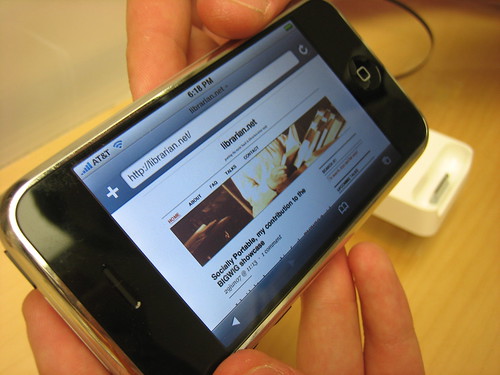Steve Lawson has some details about why library apps for Facebook aren’t being approved along with all the other applications that are being created to use Facebook’s API. It’s got nothing to do with the libraryness of them, just that Facebook doesn’t allow applications to do web searches, for whatever reason.
Actually the reason to me is fairly obvious. Facebook would like to keep you on Facebook. They would like to take your loyalty for other sites like Flickr and YouTube and shift it to Facebook so they can serve you Facebook ads while you look at the online content you were looking at anyway. The fact that when you are searching an online library catalog you are not technically searching the web may be a detail that might act in libraries’ favor this time, but it’s still an overall Bad Thing for the profession, in my opinion (though I acknowlege that this is a debatable point). I hope this Facebook thing can be resolved decently. I can see a few ways that it might be — returning search results to the FB interface, FB loosening up over OPACs for two easy ones. I don’t do much on Facebook except look up friends’ phone numbers and change my stauts every so often, but it’s got a killer grip on today’s students and young people (and oldsters like myself) and it would be nice if we could find a way to leverage that to help do our jobs better.
update: be sure to read the comments for Ken Varnum’s story of working successfully with Facebook to get the UMich catalog app on there.
